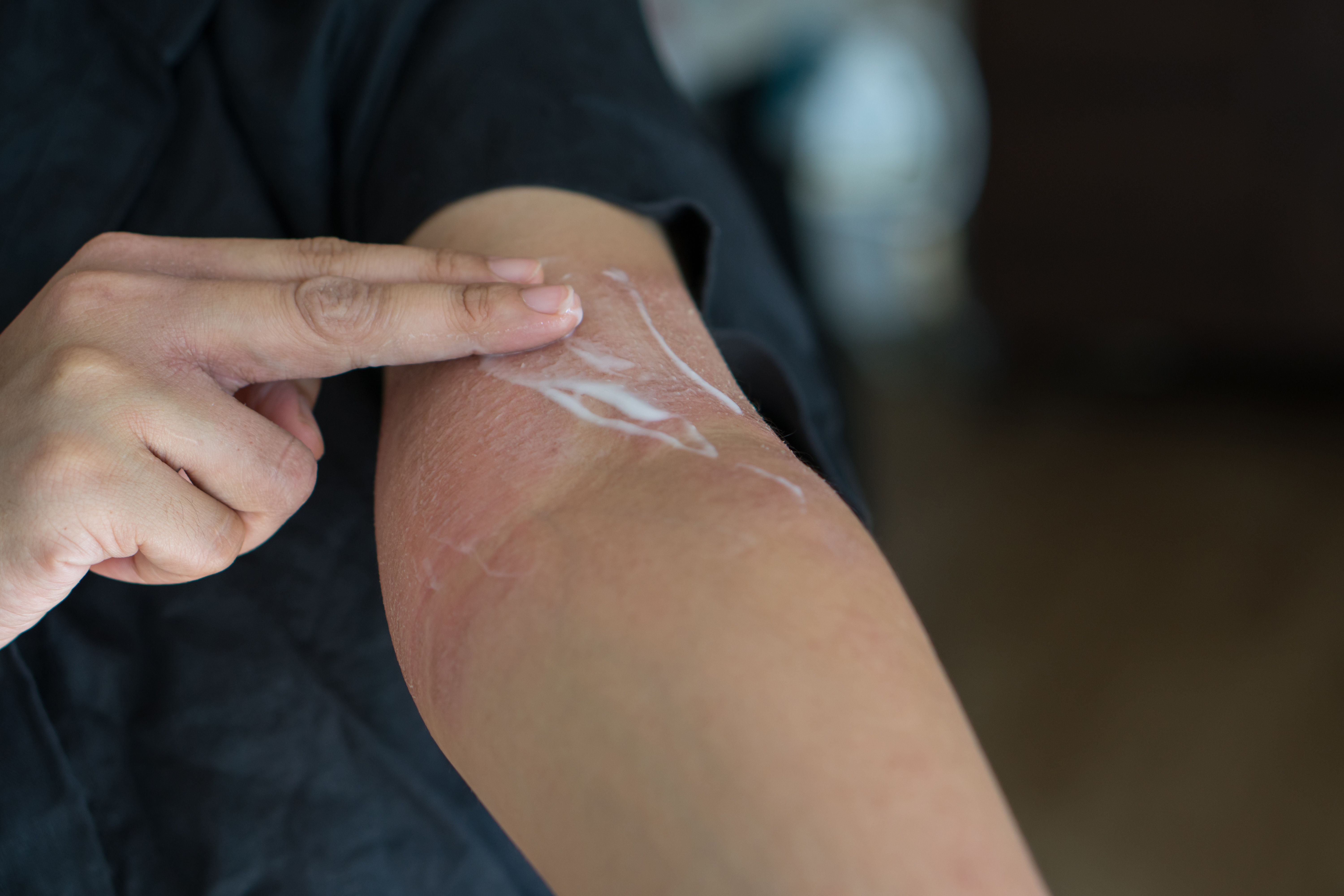- Acne
- Actinic Keratosis
- Aesthetics
- Alopecia
- Atopic Dermatitis
- Buy-and-Bill
- COVID-19
- Case-Based Roundtable
- Chronic Hand Eczema
- Chronic Spontaneous Urticaria
- Drug Watch
- Eczema
- General Dermatology
- Hidradenitis Suppurativa
- Melasma
- NP and PA
- Pediatric Dermatology
- Pigmentary Disorders
- Practice Management
- Precision Medicine and Biologics
- Prurigo Nodularis
- Psoriasis
- Psoriatic Arthritis
- Rare Disease
- Rosacea
- Skin Cancer
- Vitiligo
- Wound Care
News
Article
Dermavant Submits sNDA to FDA for Tapinarof Cream 1% to Treat AD Down to 2 Years
Author(s):
Tapinarof cream demonstrated highly statistically significant improvement in the primary end point of vIGA-AD treatment success over vehicle at week 8.
sattahipbeach/AdobeStock

Dermavant Sciences recently announced its submission of a supplement new drug application (sNDA) to the FDA for tapinarof (Vtama) cream 1% for the topical treatment of atopic dermatitis in adults and children aged 2 years and older. Tapinarof cream is a novel, aryl hydrocarbon receptor agonist in development as a once-daily, cosmetically elegant, and steroid-free, topical cream for both acute treatment and long-term management of atopic dermatitis.1
The sNDA submission is based on positive phase 3 data from ADORING 1 (NCT05014568) and ADORING 2 (NCT05032859), 2 identical, double-blind, randomized, vehicle-controlled, pivotal trials, as well as data from an interim analysis of ADORING 3 (NCT05142774), a phase 3, 48-week, open-label, long-term extension study.
In the ADORING trials, tapinarof cream demonstrated highly statistically significant improvement compared to vehicle (both P<0.0001) in the Validated Investigator Global Assessment for Atopic Dermatitis (vIGA-AD) scores of 0 (clear) or 1 (almost clear) with at least a 2-grade improvement from baseline at week 8, the primary end point.
"This sNDA submission – supported by positive phase 3 data from ADORING 1 and ADORING 2, as well as data from an interim analysis of our ADORING 3 open-label, long-term extension study – is a true testament to Dermavant’s commitment to innovation for people living with chronic skin conditions. Topical therapies for atopic dermatitis remain an area of unmet medical need, particularly in children. This milestone brings us one step closer to providing a potential option for adults and children 2 years of age and older looking for both acute treatment and long-term management of atopic dermatitis," said Phil Brown, MD, JD, Chief Medical Officer of Dermavant, in a statement to Dermatology Times.
Tapinarof cream demonstrated highly statistically significant improvement in the proportion of patients with ≥75% improvement in the Eczema Area and Severity Index (EASI75) from baseline to week 8 compared to patients on vehicle (both P<0.0001), a key secondary end point in the ADORING trials.
Patients aged 12 years and older who received tapinarof cream also experienced a statistically significant improvement in itch as assessed by a ≥4-point improvement in the patient-reported Peak Pruritus Numeric Rating Scale score compared to patients who received vehicle (P=0.0366 for ADORING 1 and P=0.0015 for ADORING 2), another key secondary endpoint. No new safety signals or tolerability signals of concern were reported. Adverse events were mainly mild to moderate with a low study discontinuation rate due to adverse events.
“The prevalence of atopic dermatitis, an extremely burdensome skin condition, continues to grow, and there is an increasing need for new, long-term, treatment options, especially for children,” said Todd Zavodnick, Chief Executive Officer of Dermavant, in the news release. “Today’s submission of our sNDA marks a significant milestone as we work towards the approval of Vtama cream for patients suffering from atopic dermatitis as well as the families and caregivers of these patients. We are confident, that Vtama cream, if approved by the FDA, will be well positioned as a safe, well-tolerated, steroid-free topical treatment option for patients 2 years of age and older with AD and could provide for long-term disease management, representing meaningful advancement for patients, caregivers, and healthcare providers.”
Tapinarof cream was approved by the FDA for the treatment of plaque psoriasis in adults on May 24, 2022. The approval was based on phase 3 data from PSOARING 1 (NCT03956355) and PSOARING 2 (NCT03983980), 2 identical, randomized, mutli-center, double-blind, vehicle-controlled trials with adult patients aged 18 to 75 years with plaque psoriasis. Across PSOARING 1 and PSOARING 2, tapinarof cream demonstrated highly statistically significant improvement in Physician Global Assessment scores of clear (0) or almost clear (1) with a minimum 2-grade improvement compared with vehicle from baseline at week 12.2
In a recent Dermatology Times custom Between the Lines video series, Raj Chovatiya, MD, PhD, and Adelaide Hebert, MD, FAAD, provide their thoughts on tapinarof’s performance in atopic dermatitis clinical trials and its tolerability. Click here to view the full series.
References
- Dermavant submits supplemental new drug application (sNDA) to FDA for Vtama (tapinarof) cream, 1% for the treatment of atopic dermatitis in adults and children 2 years of age and older. News release. Dermavant Sciences. February 14, 2024. Accessed February 14, 2024. https://www.dermavant.com/dermavant-submits-supplemental-new-drug-application-snda-to-fda-for-vtama-tapinarof-cream-1-for-the-treatment-of-atopic-dermatitis-in-adults-and-children-2-years-of-age-and-older/
- FDA approves Dermavant’s Vtama (tapinarof) cream, 1% for the treatment of plaque psoriasis in adults: first topical novel chemical entity launched for psoriasis in the U.S. in 25 years. News release. Roviant Sciences. May 24, 2022. Accessed February 14, 2024. https://investor.roivant.com/news-releases/news-release-details/fda-approves-dermavants-vtamar-tapinarof-cream-1-treatment
Newsletter
Like what you’re reading? Subscribe to Dermatology Times for weekly updates on therapies, innovations, and real-world practice tips.











